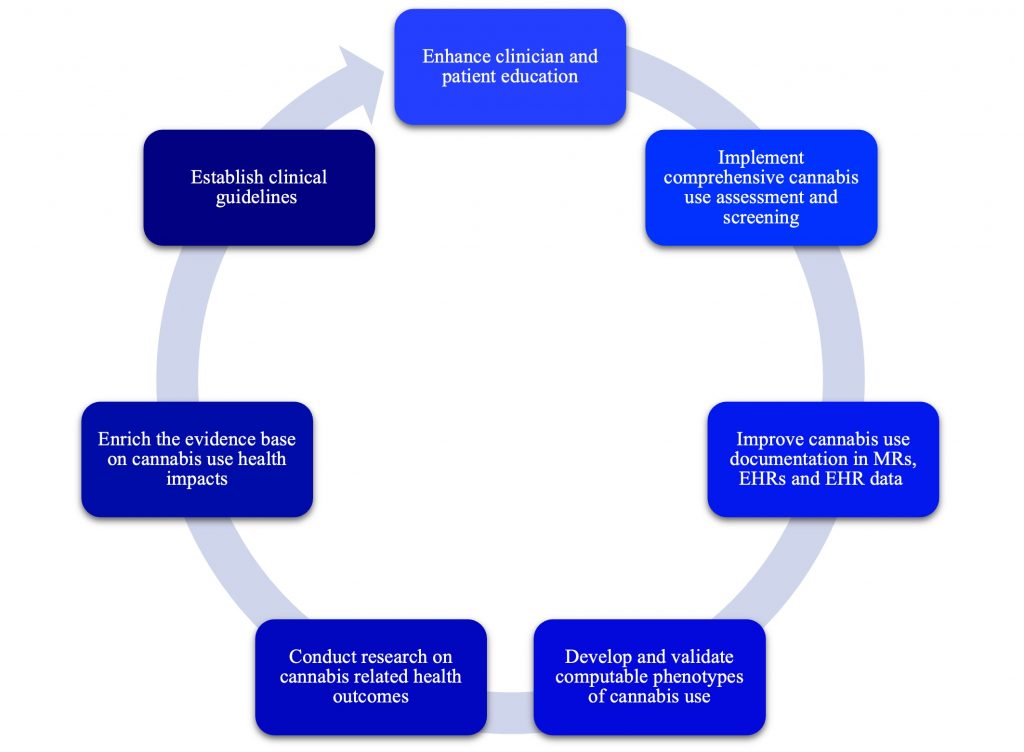Lack of cannabis use assessments contributes to under-documenting use, limited research, and more
Evidence on the safety and effectiveness of medical marijuana lacks behind the increase in cannabis use for a variety of medical conditions. One source of data to elucidate our understanding of cannabis effects are real-world data such as data collected for clinical purposes, but documentation of cannabis use that could be tracked to evaluate patient outcomes is poor.
In a recent commentary, Ruba Sajdeya, MD and Amie Goodin, PhD from the University of Florida highlight how the lack of a systematic cannabis use assessment causes gaps in cannabis documentation, clinical preparedness, and research.

Dr. Sajdeya and Dr. Goodin propose a high-level multi-step approach to close these gaps:
- Enhance clinician and patient education on the importance of cannabis use assessment and documentation, and train clinicians.
- Implement a standardized approach for comprehensive cannabis use screening and assessment within and across healthcare systems.
- Improve the documentation of cannabis use and its correlates in health records by building in prompts for clinicians to minimize the use of free text and help create harmonized shared data models.
- Develop and validate computable phenotypes of cannabis use and its subtypes to facilitate research, improve reproducibility, and reduce bias.
- Promote and conduct research on cannabis-related health outcomes using the electronic health data from the standardized cannabis use assessment model to enrich the evidence base and inform clinical guidelines and policymaking.
- Establish evidence-based clinical guidelines for management and therapies in patients using cannabis, disseminate them to clinicians, and update guidelines as more evidence is generated.
Improving cannabis use assessment and documentation within healthcare systems is necessary to enhance patient care and improve the quality of electronic health databases. High-quality health data can help overcome the existing knowledge gaps by accelerating research involving a wide array of cannabis-related health outcomes and evidence generation.
